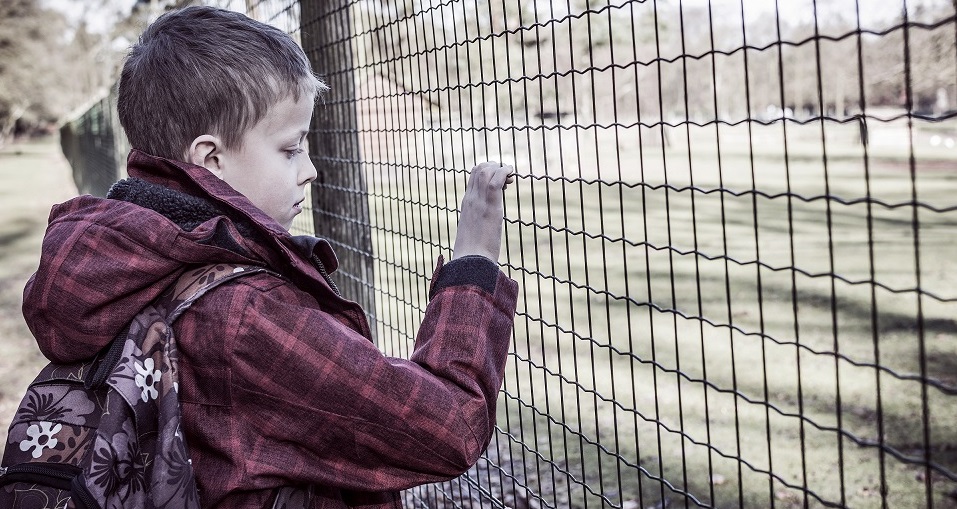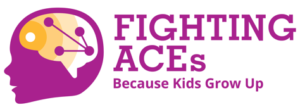 We have to share the world we live in. That might seem obvious but consider the hundreds of ways we interact with others every day, adhering to an unwritten social contract. When a traffic light turns red, we stop. We rely on others to obey this signal, too. We share space with total strangers in grocery stores, at gas stations, and on public transport. We spend hours a day with co-workers we need to get along with. No matter the natural human inclination towards self-interest, we all have high stakes in keeping our communities as healthy and safe as possible. We’re social creatures and we’re in this together – sharing communal space.
We have to share the world we live in. That might seem obvious but consider the hundreds of ways we interact with others every day, adhering to an unwritten social contract. When a traffic light turns red, we stop. We rely on others to obey this signal, too. We share space with total strangers in grocery stores, at gas stations, and on public transport. We spend hours a day with co-workers we need to get along with. No matter the natural human inclination towards self-interest, we all have high stakes in keeping our communities as healthy and safe as possible. We’re social creatures and we’re in this together – sharing communal space.
This makes us vulnerable to the behavior of others. When there’s another tragic school shooting, our community’s children lose their lives. When a local teenager overdoses on drugs, we suffer the pain and confusion of that senseless loss. When a child in the neighborhood watches his father hit his mother, science indicates that the behavior tends to be repeated generation after generation. All these ACEs (Adverse Childhood Experiences) affect us. Nobody is insulated by the location of their home, their economic privilege, or perhaps even their conscious efforts to isolate and protect themselves and their families. Whether for humanitarian, religious, altruistic, or even selfish reasons, it’s in our best interests as individuals and a society, to care about others.
Through this blog series, we’ve learned what ACEs are and the profound implications they have on the lives of individuals, but whenever children are exposed to ACEs, each and every one of us may end up paying the price. Domestic and community violence is directly correlated to ACEs. So are substance abuse, alcoholism, depression and many diseases.
However, we can reduce future violence, substance abuse and many other social ills by intervening and acting as a buffer for our community’s children. Anne-Marie Brown, LCSW, MCAP, CIP, ICADC, Director of Center for Child Counseling’s Childhood Trauma Response Program, has seen the results of non-intervention firsthand. Before joining CfCC, she spent over a decade working with adults overcoming substance abuse and, without fail, Anne-Marie saw where her clients’ problems began.
Every single adult she encountered had a history of childhood trauma, illustrating a direct link between ACEs and greater societal issues. Palm Beach County has a significant number of parents who abuse substances or suffer the cycle of domestic abuse.
In the County and State, children aged 0-6 enter the child welfare system at very high rates. In just one four-day week recently, Center for Child Counseling (CfCC) handled calls for 20 children who needed assessments because they were removed from their families, most due to substance abuse and domestic violence.
The Negative Toll on Community Wellness
ACEs often negatively affect a family for generations. Kids who are abused or neglected grow up and find themselves in similar situations with domestic violence or substance abuse. Their children suffer abuse and neglect, turn to drugs or alcohol, and the cycle starts all over again.
Karen Baldwin, a clinical therapist for the Palm Beach County Sheriff’s Office Crisis Intervention Team, says she receives calls every day about situations where people are unable to regulate their emotions or think rationally.
“Adults who experienced ACEs and didn’t get some sort of intervention have been using coping mechanisms for a very long time. Unfortunately, most of them don’t work,” she says. “Eighty percent of the women in our jail system have a history of trauma they’ve likely never dealt with. They get trauma counseling when they’re released, but they needed it long before then.”
The lack of community awareness about ACEs’ generational impact is a roadblock to securing more resources and greater involvement. That’s why CfCC works so hard to educate, train, and build the skills of a wide range of community stakeholders.
The Economic Argument
The financial implications for society are staggering.
Besides the obvious losses caused by a criminal act, determining the true economic impact of antisocial behavior on a community is complicated. A research paper co-authored by Dr. Kathryn E. McCollister of Miami’s Miller School of Medicine estimates the total tangible cost of one murder at $1.5 million, one rape/sexual assault at $47,500, and one aggravated assault at $23,000 – not to mention the psychological damage perpetuated by a violent act over several generations. (Figures adjusted for inflation.)
Fighting the Immediate and Lifelong Impact
Organizations and individuals do fight back. Since 1999, the Center for Child Counseling has been addressing the immediate and lifelong impact that exposure to toxic stress and traumatic experiences has on children. Two years ago, CfCC’s Childhood Trauma Response (CTR) Program was developed in collaboration with ChildNet to serve children aged 0-5 entering the foster care system. In the last eight months, through funding from the Moran Foundation, CTR has assessed more than 130 children. The program provides services that help build resilience and provide coping techniques, so children can process what they’ve experienced.
Both Brown and Baldwin say they need the community’s help. Here are some of their goals:
1.) Every clinician and every adult in contact with children needs to commit to early intervention.
2.) Every adult in a child’s life must be aware of ACEs and their dire consequences.
3.) All of us can find ways to share information about ACEs.
Evidence shows that early intervention for ACEs, like that provided by CfCC, can reduce or prevent someone from engaging in harmful or violent behaviors later in life. Every child should grow up feeling safe and loved. You can be a buffer against childhood trauma and adversity by joining us in the fight against ACEs in Palm Beach County. How do you become a buffer? What does a buffer need to do to be an effective shield for a child? You’ll learn the answers in our next blog.

Sign up now for news, events, and education about Adverse Childhood Experiences (ACEs) and promoting resilience.
By submitting this form, you are consenting to receive emails from: Center for Child Counseling, 8895 N. Military Trail, Palm Beach Gardens, FL, 33410. You can revoke your consent to receive emails at any time by using the SafeUnsubscribe® link, found at the bottom of every email.
